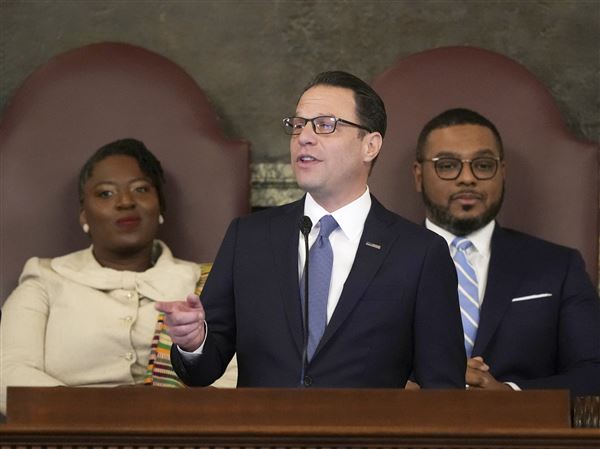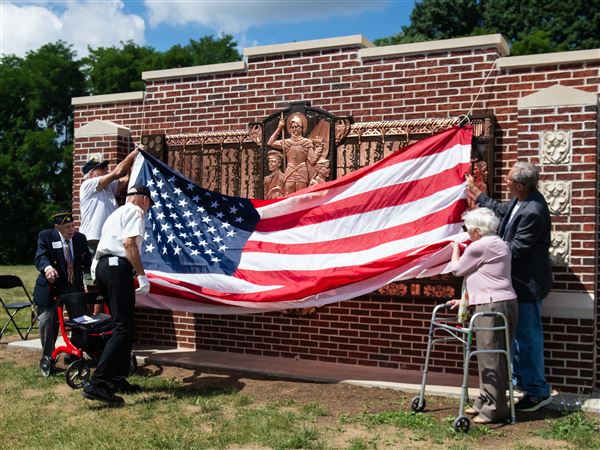As the county spends millions a year to tackle homelessness, the crisis continues to grow — the unhoused population saw a nearly 25% jump last year alone.
To better understand where the money is going, Allegheny County Controller Corey O’Connor announced plans Wednesday to audit funds that the county’s Department of Human Services receives from the state for homelessness services.
With money from Pennsylvania’s Homeless Assistance Program, counties can fund a variety of support services to individuals and families experiencing or at risk for homelessness.
The audit would look more closely at which providers are getting funds from DHS to mitigate the effects of homelessness through prevention activities, case management services, and housing and rental assistance.
The analysis will look specifically at how much each provider gets, and how efficiently the funds are being spent. It also would include performance evaluations of how well the county and providers are serving unhoused. And there would be an analysis of how much money is being spent on administrative costs versus services.
“Our audit will look at the allocation of county resources in this space and assess their effectiveness in preventing and alleviating homelessness,” Mr. O’Connor said in a statement. “To meaningfully address this seemingly intractable and growing problem, we need data on the operation of our existing programs and to identify where gaps may exist. I am hopeful that this audit will help to address this critical issue more comprehensively and effectively.”
In a statement Wednesday evening, county Department of Human Services Director Erin Dalton said she will work with Mr. O’Connor’s office to “evaluate procedures surrounding monitoring and evaluating the Homeless Assistance Programs.”
She said some reports that DHS receives $100 million in funding for homeless services “is grossly misstated.” She said that in fiscal 2022-23, the department’s “allocation of Homeless Assistance Program funding was less than $3 million. Due to flexibility allowed within the block grant and in response to local need, DHS spent its full allocation of Homeless Assistance Program funding and spent a total of just over $13 million from the Human Services Block Grant in an attempt to meet post-pandemic increases in need for homelessness services.
“We will grant full cooperation to the Office of the Controller and will make available any records, documents, or information in accordance with their request.”
Allegheny County Council member Nicholas Futules said he’s glad to see the controller’s office taking action.
“Is there some question as to where the money is going? I’m not sure,” Mr. Futules said. “But that’s what the controller’s office does, they check to see where things are going. We do have an issue in the city of Pittsburgh with homelessness. I have addressed it myself a couple times publicly, and we need to correct it.”
As advocates sound the alarm on the overflowing shelter system, Mr. Futules said he believes opening more short-term shelters alone would just be a Band-Aid solution. Late last year, Mr. Futules introduced a motion to transform the campus of the former Veterans Affairs hospital on Highland Drive into a longer-term shelter to help people get back on their feet over the span of months or even years.
He said he wants to see more investment in services that target the causes of homelessness, including substance abuse and mental health.
Similar conversations are occurring in Pittsburgh City Council. Recently, council began weighing legislation that would designate certain parts of the city to become encampment sites. These areas would permit no more than 50 people and have access to restrooms.
But financially backing initiatives to help the unhoused is another challenge. Last year, the Post-Gazette found gaps in the way the city handled pandemic aid money. Nearly $10 million in federal funds that were meant to to expand the Reaching Out On The Streets outreach program was unaccounted for.
County Councilman Sam DeMarco said he is skeptical that the audit will result in meaningful reform.
“I wouldn’t expect folks to hold on hope that that audit is going to provide an answer for what needs to be done to address homelessness in this area,” he said. “We recognize that we have a problem here. I know that human services was aware of it. But there are a number of key points along this continuum of care that need to be addressed.”
Ms. Dalton has pointed to the need to build more affordable housing, saying the shelter system will always be a revolving door if there is nowhere for people to go. But like Mr. Futules, Mr. DeMarco wants to see a more holistic approach with stronger support services.
“You can’t just say, ‘Well, we’ll build affordable housing and we’ll get people out,’” Mr. DeMarco said. “If you don’t address the underlying causes, the reasons that cause people to be homeless in the first place – it’s our job to provide a safety net and to try to help the people that need it.”
Because the issues overlap, both council members want to see more collaboration between the city and county.
“This is a regional problem,” Mr. DeMarco said. “Shouldn’t we be working on a solution to this together?”
Post-Gazette reporter Steve Bohnel contributed to this article.
First Published: January 10, 2024, 10:22 p.m.
Updated: January 11, 2024, 7:54 p.m.



















